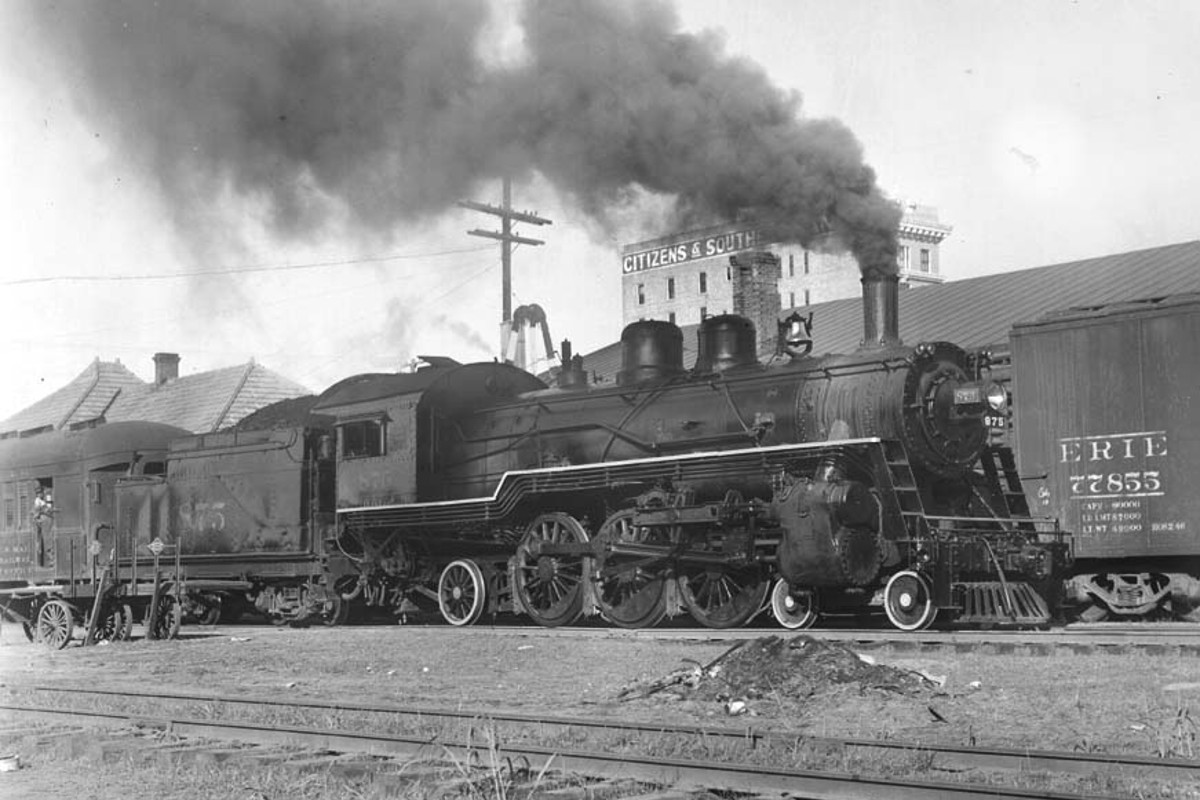By Elliott Brack
Editor and Publisher, GwinnettForum
OCT. 1, 2021 | Songwriter Johnny Mercer was born in Savannah, but probably never rode on the daily passenger train, the “MD&S.” The letters stand for the train’s name, the Macon, Dublin and Savannah. But you see the train, powered by a Baldwin 4-6-2 steam engine, didn’t go on to Savannah. It ended each day’s run in Vidalia, then reversed itself and choo-chooed back to Macon in the afternoon. It was a short train, a mail car and one or two passenger cars. But it was vital to people along its route in South Georgia. The line also hauled freights, of course. (Vidalia passengers could catch the Seaboard rail lines Montgomery-to-Savannah service to go into Savannah.)
![]() The MD&S was the rail line that gave me my first train ride. We lived in Macon, and our family was from Allentown, in Wilkinson County, one of the stops on the MD&S. The daily service left the Macon Terminal about 8 a. m, with stops at Dry Branch, Jeffersonville, Danville and finally for me in Allentown, I rode the train by myself when about age 10, to visit my relatives, particularly my grandmother, in Allentown. Her house faced the rail tracks, with the cotton gin during summers blaring away down the road on the other side of the tracks. Allentown, in those days, had a population of about 300, with two general stores, and most importantly, the Four County Bank, serving the area where four counties square up: Wilkinson, Laurens, Twiggs and Bleckley, just south of town.
The MD&S was the rail line that gave me my first train ride. We lived in Macon, and our family was from Allentown, in Wilkinson County, one of the stops on the MD&S. The daily service left the Macon Terminal about 8 a. m, with stops at Dry Branch, Jeffersonville, Danville and finally for me in Allentown, I rode the train by myself when about age 10, to visit my relatives, particularly my grandmother, in Allentown. Her house faced the rail tracks, with the cotton gin during summers blaring away down the road on the other side of the tracks. Allentown, in those days, had a population of about 300, with two general stores, and most importantly, the Four County Bank, serving the area where four counties square up: Wilkinson, Laurens, Twiggs and Bleckley, just south of town.
One incident forever engraved in my mind concerning the MD&S. Of the four sons in my grandmother’s family, only one, the youngest, named Homer, was in World War II military service. The others were either too old, or didn’t pass the physical exams. (My father was called to service, but turned down because of a “heart murmur.” But he lived to an older age.)
After basic training, Uncle Homer was stationed on the West Coast, at Fort Lewis, Wash. This was a terrible place to send him, in that he had asthma. The cold, wet climate of Washington was bad for him, and eventually, the Army discharged him, and he was coming home.
Members of our large family gathered at the train depot one bright morning about 9 a.m. awaiting his arrival. He came off the train in his winter olive drab uniform looking fit. His oldest brother, Marvin, was first to greet him. What surprised me is that they “shook hands.”
Perhaps I was expecting they were close enough that they would hug. But the somewhat distant handshake has stood in my mind all these years. Of course, after that came the onslaught of the relatives with the hugs, his mother, other brothers and their wives, nieces, nephews and cousins smothering him. After all, to us, he was the returning hero, though he had been discharged as unfit, because of asthma. And the MD&S had brought him home.
Back to Songwriter Johnny Mercer and the lyrics he wrote about one train he helped make famous. The one verse that sticks in my mind is where he describes the timely aspect of the train service to those living out West: “Folks around these parts get the time of day, on the Atchison, Topeka and Santa Fe.” For those living along the route of the MD&S, its service was also regular and mostly on time. Yes, we could almost set our clocks by its twice-a-day arrival.
- Have a comment? Send to: elliott@brack.net











Follow Us